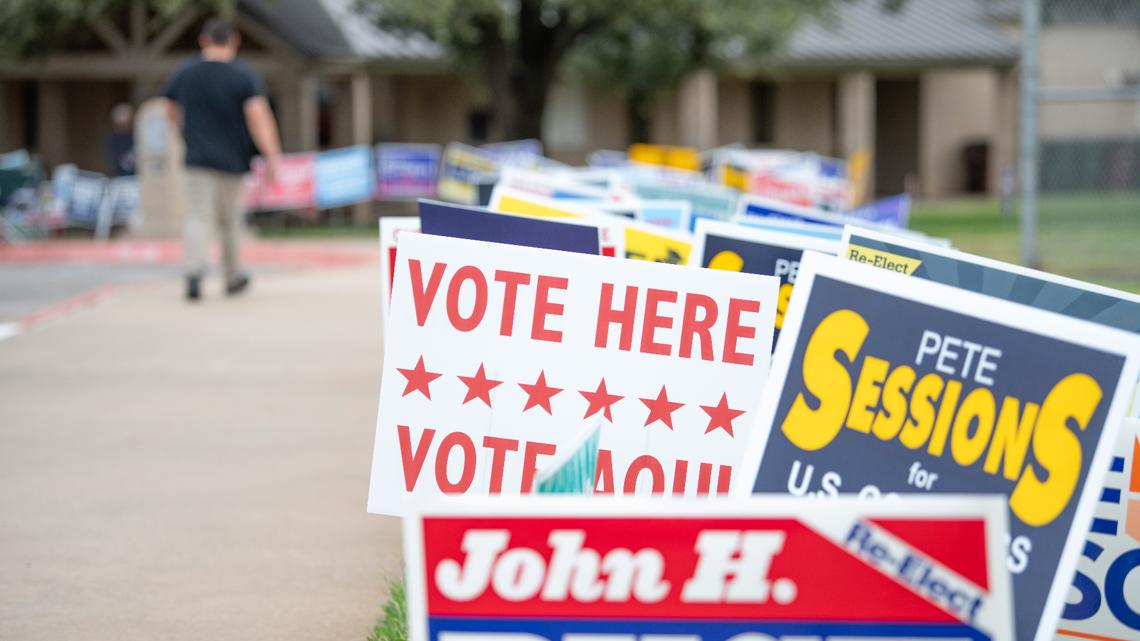
The cases are a miniscule fraction of the 11.3 million Texans who voted in the November 2024 General Election.
AUSTIN, Texas — Texas Secretary of State Jane Nelson announced on Thursday that her office was referring the names of 33 “potential noncitizens” who voted in the November 2024 General Election to the Texas Attorney General’s Office for investigation.
Nelson said the cases were identified after her office gained access to a federal database maintained by the U.S. Citizenship and Immigration Services, where they were able to cross-check citizenship status with voter rolls. Nelson called gaining access to the database a “game-changer.”
“Not only have we been able to identify individuals who should not have voted in the last election, we have also been able to confirm the naturalization of dozens more,” Nelson said.
The announcement comes days after the end of the 89th regular Texas Legislative Session, where Republican state lawmakers pushed to pass legislation that would have required Texans to prove their citizenship before voting in state, local and presidential elections. Noncitizen voting is already illegal in Texas and is something that rarely happens.
The legislation, which would have applied to both new and currently registered voters and restricted those without proof of citizenship to only voting in congressional elections, passed the Texas Senate on a party-line vote but did not make it to the floor of the Texas House of Representatives for a vote.
“We express our consent through the vote, through the ballot box,” State Sen. Bryan Hughes (R-Mineola) said. “One of the rights that U.S. citizens enjoy is the right to vote in U.S. elections. It is reserved to U.S. citizenship. It is something that’s been paid for dearly, and that is why it’s important that citizenship be verified at the point of voter registration.”
While Republican state lawmakers called the legislation an important step in addressing election security, opponents described it as a solution in search of a problem.
“There is no credible evidence of widespread noncitizen voting in Texas,” State Rep. John Bucy (D-Austin) said during an April press conference. “None.”
The 33 potential cases of noncitizens voting are a tiny fraction of the 11.3 million Texans who voted in the November 2024 General Election. It is not clear exactly where in Texas the potential cases of noncitizen voting occurred.
It comes after last fall, Gov. Greg Abbott announced that Texas had removed more than 6,500 noncitizens from its voter rolls since 2021. However, a subsequent investigation by ProPublica, the Texas Tribune and Votebeat found the number of noncitizens removed from voter rolls was inflated. The investigation found that the Secretary of State’s office only identified 581 noncitizens, who were then removed. The governor’s news release combined this number with the number of eligible voters who did not respond to letters asking about their citizenship.
While Texas state law already bars noncitizens from voting, state lawmakers are seeking to make it clear that is the case. They advanced a proposed constitutional amendment to clarify that only United States citizens are eligible to vote in Texas elections. Senate Joint Resolution 37 would change the Texas Constitution to prohibit noncitizens from voting explicitly. It will appear on the November ballot for voter approval.
Back in 2019, Texas compiled a list of approximately 100,000 voters they suspected to be noncitizens, but the majority were found to be eligible voters. It led to the then-Texas Secretary of State David Whitely resigning.
In March, President Trump issued an executive order directing the Department of Homeland Security to provide free access to the SAVE database to all states. Nelson said Texas was among the first states to log in and is now part of a pilot program working with several federal agencies to improve the database’s functionality.
“We are in the early stages of this pilot program, but we already see promising results,” Nelson said. “This may be the most current and accurate data set there is when it comes to citizenship verification.”
